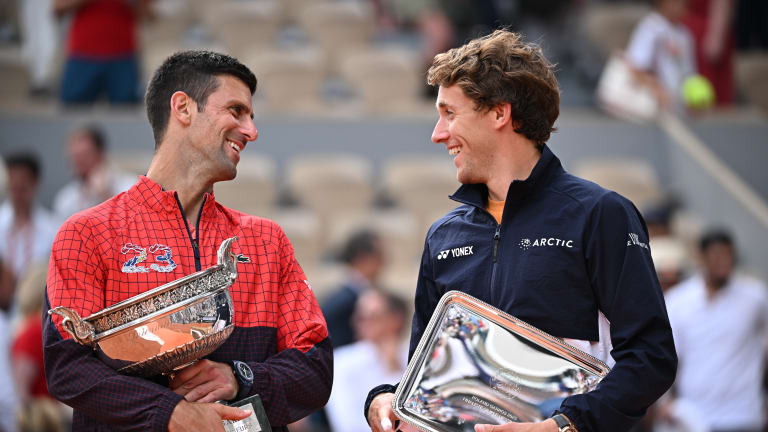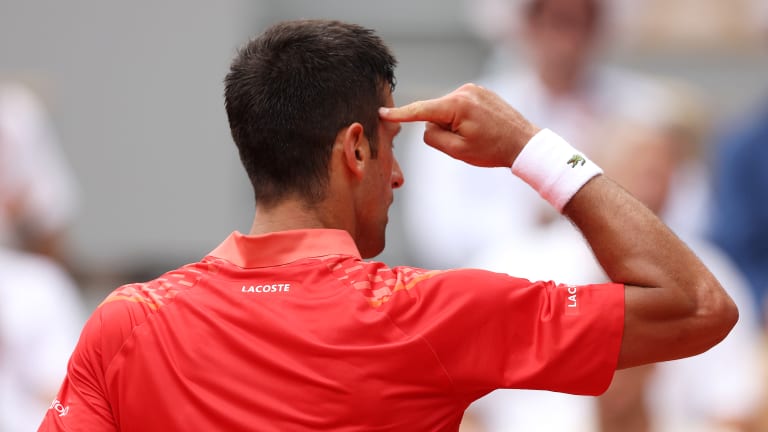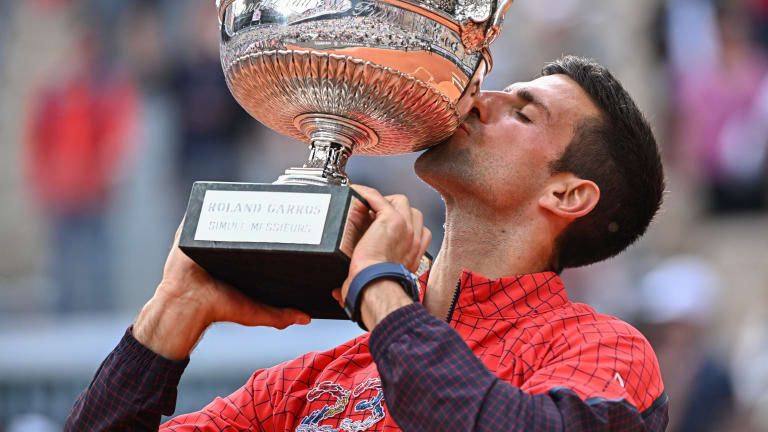Roland Garros
Novak Djokovic’s 23rd Grand Slam win had all the hallmarks of what brought him to this record-breaking pinnacle
By Jun 11, 2023Roland Garros
Was the Carlos Alcaraz-Jannik Sinner Roland Garros match the best ever played?
By Jun 13, 2025Roland Garros
Who were the winners and losers at 2025 Roland Garros?
By Jun 09, 2025Roland Garros
Carlos Alcaraz and Jannik Sinner played the match of the decade, and maybe the century, at Roland Garros
By Jun 09, 2025Roland Garros
PHOTOS: Carlos Alcaraz captivates Chatrier with trademark joy after improbable Roland Garros title defense
By Jun 09, 2025Roland Garros
Carlos Alcaraz saves three match points, tops Jannik Sinner in longest Roland Garros final of Open Era
By Jun 08, 2025Roland Garros
Aryna Sabalenka clarifies controversial Coco Gauff claim: "Can't pretend it was a great day"
By Jun 08, 2025Roland Garros
Coco Gauff counters Aryna Sabalenka's Roland Garros claim by saying she 'wanted' Iga Swiatek in final
By Jun 08, 2025Roland Garros
2025 Roland Garros men's final preview: Carlos Alcaraz vs. Jannik Sinner
By Jun 07, 2025Roland Garros
PHOTOS: Coco Gauff celebrates Roland Garros title with parents, toasts champagne at Tennis Channel set
By Jun 07, 2025Novak Djokovic’s 23rd Grand Slam win had all the hallmarks of what brought him to this record-breaking pinnacle
By believing in a career with “no limits,” one where “everything is possible,” Djokovic has made himself the Grand Slam king by winning everywhere, on every surface—in an era that included two other all-time greats.
Published Jun 11, 2023
Advertising
Advertising

Ruud’s efforts only inspired Djokovic to put on another vintage performance on one of tennis’s four biggest stages.
© Stephane Cardinale
Advertising

In the third set, Ruud held for 5-4, and seemed for a second to have emerged from his mid-match funk. How did Djokovic react? He won 12 of the next 13 points.
© Getty Images
Advertising

Djokovic has made himself the Grand Slam king by winning everywhere, on every surface, in an era that included two other all-time greats.
© Stephane Cardinale